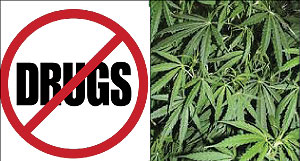Marijuana has been a lucrative underground business for ages, in most parts of the world including Rwanda. Astonishingly, the harder the law becomes on the illicit business, the larger the business grows.


Marijuana has been a lucrative underground business for ages, in most parts of the world including Rwanda. Astonishingly, the harder the law becomes on the illicit business, the larger the business grows.
It’s impossible to verify the accuracy of marijuana trade statistics because the plant remains illegal, but local government institutions and police have significant numbers.
The illicit drug trade is no doubt gradually emerging as a serious problem in sub-Saharan Africa. The continent has huge young and vulnerable populations which are becoming the target market for the illicit drug industry.
People have abandoned illicit alcohol trade to illicit drugs one due to the huge customers. There is no doubt therefore that marijuana smoking and alcohol abuse are some of the major burdens of societies in the 21st Century.
It is unfortunate that marijuana affects mostly the children and young people, yet they are viewed in a developmental perspective as future social and human capital. Their stage of development is seen as equally important as all stages of human development.
Young people use or abuse drugs for a variety of reasons. In Rwanda for instance, drugs are part of experimentation and risk taking by some youths, during the period of early and late adolescence.
A survey I undertook in different districts of Eastern Province in Rwanda last month shows that persons use and abuse drugs starting at a younger age. The study too, reveals that drug abuse is linked to other social problems, namely, child neglect, poverty, social pressures and traumas, crime and HIV/AIDS.
Children grown in such background are susceptible to indulging in drug abuse. Most of the people involved in drugs have a very bad background that is normally exacerbated by use of drugs. They lead a resigned life and are usually in a state of hopelessness.
But why does the trade persist in Rwanda?
Marijuana and illicit alcohol (Kanyanga) trade is boosted by huge profits dealers make. The commendable Police, local community policing Committees, population vigilance against the drugs, have not managed to stop the trade.
The traders have managed at many occasions to escape arrests or bribe their way through when smuggling the drugs to and from different countries. As many seizures have shown during the last couple of months, most of the marijuana for instance is smuggled from neighbouring countries.
The commodities being trafficked include not only illicit drugs, chemical precursors, humans, arms, counterfeit products, etc.
Traffickers conceal the drugs in trucks and cars and buy their way to wherever they want-they have the enough money to do it. So, with such strong financial capacitates, the trade persists.
Coping with the challenge
The current situation is causing very serious concerns as traffickers are becoming more sophisticated and organized in carrying out cross-border and transit-trafficking operations.
It however is important to note that the Rwanda police have in reaction started a strong campaign to reverse the situation. The population should henceforth, start working closely with the police to isolate the traffickers, and desist from being accomplices.
People’s indifference in the drug trafficking has directly impeded regional progress in preventing and controlling trafficking illicit drugs.
The people should not work with ignorance, but enlightened on the serious repercussions of drug trafficking.
Trafficking of drugs is linked with trans-national criminal groups and is trans-boundary in nature. It thus needs a regional and international approach to effectively combat the trafficking.
Although the existing heavy punishments accorded by the law in Rwanda are very important, there is need of a nurturing and empowering programme that instils values and social coping skills.
The drug addicts we have should be given special rehabilitation treatment from where they serve their punishments in prisons. To break the cycle of drug abuse and trafficking, there is need for a well manned rehabilitation centre.
Experts say that by providing a fresh, safe environment, distanced from their past friends and familiar surroundings for an extended period of time, the chance for success increases dramatically.
One thing is for sure if you are trying to break a habit such as drug addiction, a change of environment should be at the top of the list as far as solutions are concerned.


